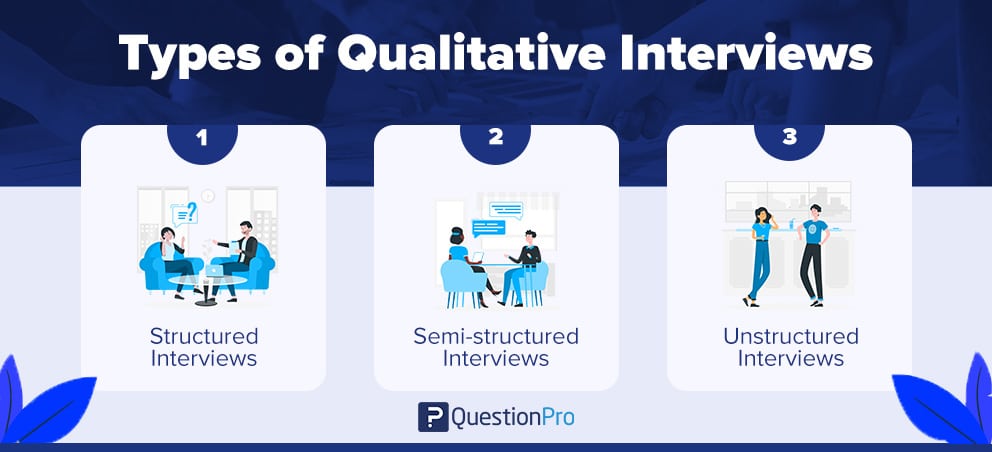An introduction to qualitative research interviewing – Embark on a journey into the world of qualitative research interviewing, where we delve into the depths of human experiences and perspectives. This comprehensive guide will equip you with the knowledge and skills to conduct impactful interviews that uncover rich insights and drive meaningful change.
Qualitative research interviewing is an art form that requires careful planning, ethical considerations, and a deep understanding of the nuances of human communication. By mastering the techniques and approaches Artikeld in this guide, you will gain the confidence to engage with participants, build rapport, and elicit valuable information that can inform your research and decision-making.
Introduction to Qualitative Research Interviewing

Qualitative research interviewing is a method of data collection that involves conducting in-depth interviews with a small number of participants to gain insights into their experiences, beliefs, and perspectives. It is a powerful tool for understanding the human experience and exploring complex social issues.
Qualitative research interviews differ from quantitative research interviews in that they are more conversational and exploratory. The interviewer asks open-ended questions and allows the participant to guide the conversation, providing rich and detailed data.
Types of Qualitative Research Interviews, An introduction to qualitative research interviewing
- One-on-one interviews:Involve one interviewer and one participant.
- Group interviews:Involve one interviewer and multiple participants, who interact with each other.
- Focus groups:Involve a small group of participants who are guided by a moderator to discuss a specific topic.
- Ethnographic interviews:Involve observing and interviewing participants in their natural settings.
Planning and Preparing for Qualitative Research Interviews
Planning and preparing for qualitative research interviews is crucial for successful data collection. It involves several key steps:
- Defining research objectives:Clearly state the purpose of the interviews and what information is sought.
- Developing interview questions:Craft open-ended questions that align with the research objectives and encourage participants to share their experiences and perspectives.
- Recruiting participants:Identify and recruit participants who meet the research criteria and are willing to share their experiences.
- Preparing the interview protocol:Artikel the flow of the interview, including the introduction, questions, and closing.
Conducting Qualitative Research Interviews
Conducting qualitative research interviews requires ethical considerations and effective interviewing techniques. Key aspects include:
- Establishing rapport:Building trust and a comfortable atmosphere with participants is essential for open and honest responses.
- Active listening:Paying attention to both verbal and non-verbal cues, asking clarifying questions, and summarizing participant responses.
- Probing and following up:Encouraging participants to elaborate on their answers and provide additional insights.
- Maintaining confidentiality:Ensuring that participant information is kept private and used only for research purposes.
Analyzing and Interpreting Qualitative Research Interview Data
Analyzing and interpreting qualitative research interview data involves several methods:
- Coding:Assigning labels or categories to data segments to identify patterns and themes.
- Thematizing:Identifying overarching themes that emerge from the coded data.
- Triangulation:Comparing data from different sources (e.g., interviews, observations, documents) to enhance the validity and reliability of findings.
Final Thoughts
As you embark on your qualitative research journey, remember that the power of interviewing lies in its ability to connect with individuals on a human level. By approaching interviews with empathy, respect, and a genuine desire to understand, you will unlock a wealth of knowledge that can shape your understanding of the world and make a meaningful contribution to your field.
Common Queries: An Introduction To Qualitative Research Interviewing
What is the purpose of qualitative research interviewing?
Qualitative research interviewing aims to gather in-depth, nuanced information about human experiences, perspectives, and behaviors. It seeks to understand the complexities of social phenomena and provide a rich understanding of the world from the participants’ own perspectives.
What are the different types of qualitative research interviews?
There are various types of qualitative research interviews, including: unstructured interviews, semi-structured interviews, and structured interviews. Each type offers varying levels of flexibility and structure, depending on the research objectives and the desired depth of information.
How do I prepare for a qualitative research interview?
Thorough preparation is crucial for successful qualitative research interviews. This involves defining your research objectives, developing interview questions, recruiting participants, and establishing a rapport with them prior to the interview.
How do I analyze qualitative research interview data?
Analyzing qualitative research interview data involves a systematic process of coding, categorizing, and interpreting the collected information. Various methods, such as thematic analysis and grounded theory, can be employed to extract meaningful patterns and insights from the data.
What are the ethical considerations in qualitative research interviewing?
Ethical considerations are paramount in qualitative research interviewing. Researchers must ensure informed consent, protect participant confidentiality, and maintain sensitivity to cultural and personal differences during the interview process.